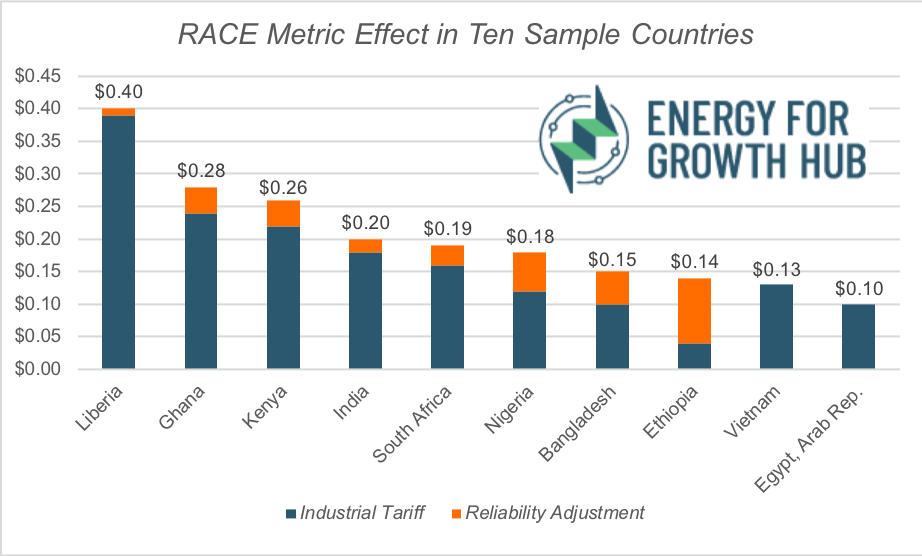Adequately tracking progress against energy poverty requires a metric that is more closely tied to income and employment than the commonly-used household access rate. The working group proposes the creation of the reliability-adjusted cost of electricity or RACE. This metric estimates the actual costs faced by private firms by capturing both tariffs from the grid plus the additional costs borne by backup generation when grid power is unavailable. RACE can be used as an indicator for the relative depth of energy poverty and of the dysfunction within electricity systems. RACE can be used by countries to compare against competitors, track progress against benchmarks, identify subnational differentials, and set future targets.
Read the full report here.

This is a report of the Energy Metric Working Group. The working group held four meetings between May and August 2019. Participants included:
Michael Aklin, University of Pittsburgh
Murefu Barasa, EED Advisory
Morgan Bazilian, Payne Institute, Colorado School of Mines
Moussa Blimpo, World Bank
Lauren Culver, World Bank
Taryn Dinkelman, University of Notre Dame
Emily Huie, ONE Campaign
Charles Kenny, Center for Global Development
Bryan Koo, ESMAP, World Bank
Robyn Meeks, Duke University
Vijay Modi, Columbia University
James Morrissey, Oxfam America
Todd Moss (working group chair), Energy for Growth Hub
Rose Mutiso, Energy for Growth Hub
Ted Nordhaus, Breakthrough Institute
Shonali Pachauri, International Institute for Applied Systems Analysis
Vijaya Ramachandran, Center for Global Development
Manju Shah, Wake Technical Community College
Kartikeya Singh, Center for Strategic and International Studies
Anant Sudarshan, University of Chicago
Jay Taneja, University of Massachusetts at Amherst
Johannes Urpelainen, Johns Hopkins SAIS
Catherine Wolfram, Haas School of Business, University of California at Berkeley
Note: Affiliations for identification purposes only. Each working group member participated in a private capacity.

